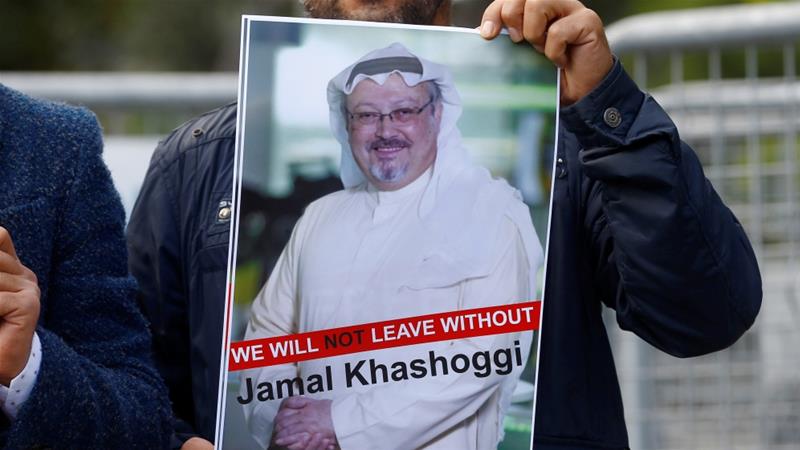Jamal Khashoggi disappears: Saudi Arabia under pressure
October 8, 2018 | Expert Insights

Prominent Saudi journalist Jamal Khashoggi has been feared dead after mysteriously disappearing last week. Turkish investigators claim the high-profile dissident was murdered in the Saudi Consulate in Istanbul by a 15-member hit squad sent from Riyadh.
Background
The relationship between Saudi Arabia and Turkey has been tense over several issues including Ankara’s siding with Qatar during the blockade imposed by Riyadh, Turkey’s closeness with the Muslim Brotherhood – which is listed by Riyadh as a terrorist organization - and its ties with regional rival, Iran.
In recent years, Saudi Arabia has been cracking down on dissent. In 2017, Saudi Arabia dismissed several ministers and detained dozens of princes and businessmen in a sweeping crackdown on the grounds of combatting corruption. Crown Prince Mohammed bin Salman, who has shaken up the kingdom with political and social changes, was leading the investigation as the head of a new anti-corruption committee.
However, analysts viewed the anti-corruption probe as a “power grab”. Amnesty International and the Human Rights Watch condemned the arrest of clerics, intellectuals and activists a “coordinated crackdown on dissent”.
Analysis
Prominent journalist Jamal Khashoggi – a high-profile critic of the crown prince – mysteriously disappeared following a visit to the Saudi Consulate in Istanbul, Turkey on October 2 to secure a document he needed to marry his fiancée in Turkey. Acquaitances fear he has been killed or detained and flown back to Saudi Arabia against his will. Saudi Arabia is now under widespread pressure to explain the disappearance.
Turkish officials claim that the 59-year-old was murdered in the consulate and his body was later removed. Investigators reportedly examined five days of security camera footage that captured all those entering and leaving both entrances of the consulate.
Khashoggi has been in self-imposed exile since the ascent of Mohammed bin Salman. He studied journalism at Indiana University in the US and started his career as a correspondent for the English language Saudi Gazette. He is best known for his coverage of Afghanistan, Kuwait, Algeria and the wider Middle East during the 1990s and his interviewing of Osama bin Laden before the latter became the leader of the al-Qaeda group.
The former editor-in-chief of Al Arab News Channel served as a political commentator and appeared on a number of Arab and Saudi channels. He recently became a columnist for The Washington Post where he became more vocal about his criticism of the Saudi regime and the crown prince’s reform programme. He continued to advocate for freedom of speech in his country.
Turkish authorities allege the journalist was killed in a state-sponsored murder believed to have been carried out by a team of 15 Saudi officials flown in from the kingdom. Authorities in Riyadh confirmed dispatching a “security delegation” to Turkey, but said they had no connection to Khashoggi’s disappearance.
Saudi officials have denied any involvement in the disappearance saying it “strongly denounced these baseless allegations”. Crown Prince Mohammed bin Salman said Khashoggi left the building “after a few minutes or one hour,’ adding that Turkish authorities were welcome to search the building.
President Recep Tayyip Erdoğan said he was “saddened” by Khashoggi’s disappearance and is awaiting the results of the investigation. Human Rights Watch has called for an independent international investigation.
“Given Saudi’s abuse of its diplomatic privileges – and all norms of diplomatic order – by brazenly kidnapping someone and allegedly killing him in their consulate, there should be a global demand for an international investigation into what happened,” said Sarah Leah Whitson, HRW’s executive director Middle East and North Africa. “Khashoggi’s reported kidnapping and even murder in the safe confines of the Saudi consulate is a deliberate strategy to sow fear into every Saudi who has spoken out about the government’s shortcomings, no matter how modestly or gently. The Saudi government wants them to know they are not safe inside or outside Saudi, and that no law or government can protect them.”
Assessment
We assess that the fallout from Khashoggi’s disappearance could further strain relations between Saudi Arabia and Turkey, potentially triggering a verbal response from the US as well. We believe that his disappearance and alleged assassination sends a chilling message to Saudi dissidents and opponents both within the country and abroad.








Comments